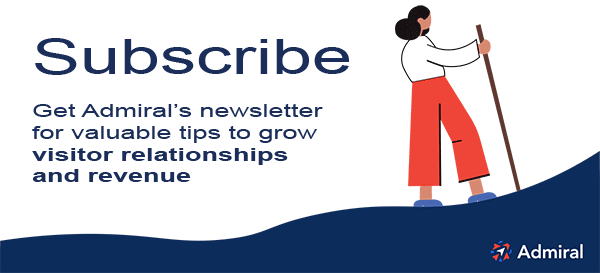"At the end of the day, we just need good journalists… I really believe these consortium type of agreements helps fill some gaps"
- Kelly Dyer Fry, Executive Editor of The Oklahoman
Publishers have had to pivot and adapt to both financial pressures, industry changes, shrinking newsrooms, and digital transformation. The COVID-19 pandemic added a layer of major disruption to both the publishing business itself and the markets you serve. Managing this landscape requires focusing on audience needs, the offering, engagement strategies, and mapping a sustainable revenue model to changing trends. A recent session of the LMA Summit Senior Leaders Strategy Session explored the challenges and benefits of collaborative journalism and how they can affect the overall publishing business.
Panel: Collaborative Journalism Meets Business Transformation
Neiman reports that collaboration is the future of journalism, and initiatives are growing nationally. Jim Brady, Project Manager for the collaborative Oklahoma Media Center, moderates a panel to discuss strategies from several publishers. Brady encourages publishers to build on lessons learned from these and other collaboratives, such as Resolve Philadelphia and Charlotte Journalism Collaborative.
What are the Benefits of Collaborative Journalism?
- Facilitates an intense collective focus on crucial local issues
- Reduces coverage duplication, which can expand the breadth of unique local coverage
- Assures greater diversity of coverage by aligning organizations that serve a variety of audiences
- Increases consumer awareness of small news organizations by having their work appear on larger sites
- Increases the potential impact of stories via network effects
- Reminds local audiences of the crucial role that quality local journalism plays in a healthy community
- Serves as a central value proposition for those seeking to raise money via membership, philanthropy, or subscription
Publisher Insights on Collaborative Journalism:
- Shared resources:
- The collective journalist group can benefit from centralized ongoing business development resources and training that a consortium provides. Brady points out that the collaborative was able to bring on a data journalist as a shared resource for all members and can offer expertise that not every newsroom has on staff.
- For smaller publishers, the access to training and resources via the collaborative can be a big draw.
- Brady says they plan to provide a database of easy-to-find assets across publishers, content, logos, attribution kickers, sortable and searchable.
- Initial concern: Competition vs Collaboration
- There are many questions that go through a publisher's head about collaboration projects: will my talent be lured away, am I fueling the competition? Kelly Dyer Fry executive editor of The Oklahoman concluded that, "At the end of the day, we just need good journalists. As newsrooms have shrunk, we need more journalists covering the news. … I really believe these consortium type of agreements helps fill some gaps."
- The panelists agreed: publishers need to put some of the competitive spirit to the side to do good journalism for their constituents, using collaborative resources.
- Publishers and journalists have concerns about sharing too much, working with their competitors.
- Mollie Bryant, founder and editor of Big if True suggests having a collaboration project can help push organizations to work together and open up some doors for dialogue and finding ways for win-win sharing.
- Filling the Gap:
- Newsrooms are stretched, with 25%-50% of the journalists they had at their high-water mark. Publisher consortium agreements can help us "fill every gap we can" with fewer resources, according to Kelly Dyer Fry. "We share content because we can't all be everywhere"
- Mollie Bryant notes that a team with investigative journalist expertise can ask other publishers "Is there a gap we can fill? Is there an investigative project you want to work on, but don't have the resources to do, that we can help you with?"
- There's value in building the relationships across local journalists, to help with opportunistic stories, or when you need "in a pinch" reporting resources.
- Getting in shape to share with others:
- Ryan Welton, Director of Digital Content for Griffin Communications, points out that first they had to "work out the kinks in our workflow" to make the collaboration happen with limited time and resources.
"It has been an epiphany...we are going to be a lot more agile, and a lot more productive in reporting original content."
- Ryan Welton, Griffin Communications
- It's good for journalism:
- "We all agree here that being a part of this is about Journalism with a capital J," says Welton.
- Collaboration can allow multiple news organizations to really get into the weeds on a topic and build a drumbeat of regular in-depth reporting over the course of a year on a key topic.
- Looking forward:
- You have to be proactive about starting to talk to each other," says Welton. "Get involved in your local journalism community, especially at the local university level."
- LMA is working with Word in Black, an association of 10 black-owned publishers across the country, to learn how better to work with journalists of color, serve minority news audiences, and share that knowledge with local news publishers.
- When putting together a local journalism collaborative it's "critical to talk to many people one to one, gain an understanding of the culture, relationships, and ebb and flow of journalism in a particular area, rather than launching an initiative solely through one-to-many communication," says Brady.
Collaborative journalism panel included:
- Jim Brady, Project Manager at Oklahoma Media Center
- Tyler Tokarczyk, program officer from Inasmuch Foundation
- Kelly Dyer Fry, executive editor of The Oklahoman
- Ryan Welton, director of digital content, Griffin Communications
- Mollie Bryant, founder and editor, Big if True
To view the full session content, along with slides, charts, and extended Q&A segments, visit this LMA Summit page.
Insights from Revenue Growth Strategy Panel
Insights from Consumer Revenue Strategy Panel
Admiral is excited to work with local, regional, and national publishers that need to grow/add revenue streams and build a closer relationship with their visitors. Admiral's Visitor Relationship Management platform can help publishers grow email newsletter lists, manage registration walls, run donation campaigns, test and implement paywalls, grow digital subscriptions, and immediately recover revenue lost to adblockers. Contact Admiral for a demo and your FREE Revenue Analytics Dashboard.





